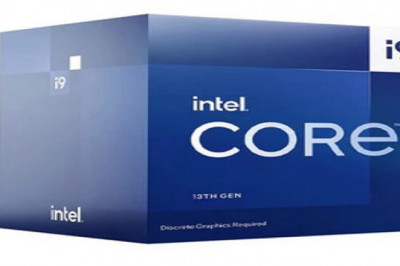views

Yogurt Market size was estimated at $132.4 billion in 2020, projected to grow at a CAGR of 9.6% during the forecast period 2021-2026. People's growing knowledge of the health advantages of yogurt, as well as their growing awareness of nutritious foods, are key factors driving Yogurt Industry development. Lactic acid bacteria, such as Lactobacillus bulgaricus and Streptococcus thermophilus, forms yogurt, a popular coagulated dairy product. It is prepared by fermenting milk with cultures like Lactobacillus bulgaricus and Streptococcus thermophilus. These bacteria create lactic acid during yogurt formation, which lowers the pH and causes milk protein to coagulate. Carbonyl molecules, non-volatile or volatile acids, and exopolysaccharides, among other metabolites, have a significant impact on yogurt quality. Protein, calcium, vitamins B6 and B12, riboflavin, potassium, and magnesium are all abundant in yogurt. Yogurt has numerous health benefits owing to its high nutritional value. It aids in the improvement of immunity, deterrence of type 2 diabetes, strengthening of bones and teeth, prevention of digestive disorders, and reduction of blood pressure and bad cholesterol. Manufacturers have also created a broad range of probiotic, stirred, creamy, and pulp-laced yogurt variations in recent years. The growing global demand for functional (probiotic) dairy foods is fueled in part by consumer interest in health-promoting diets. Yogurt is thought to be the best vehicle for delivering healthy functional nutrients. Owing to its health-promoting characteristics as an anti-stress, anti-hypertensive, and anti-diabetic agent, gamma-amino-butyric acid has promise as a bioactive component in functional meals. Streptococcus thermophilus is a non-pathogenic, facultative anaerobic lactic acid (LAB) bacterium that has a long history of usage in the home and industrial production of coagulated dairy products, particularly yogurt. Streptococcus thermophilus, as a dairy starter, may quickly convert lactose to lactic acid, causing a fast drop in pH and coagulation of milk proteins (casein). Furthermore, this bacteria provides the yogurt with a variety of good processing qualities, including taste, acidity, viscosity, and water holding capacity.
Yogurt Market Segment Analysis – By Flavor:
Based on Flavor, Yogurt market is segmented into Strawberry, Blueberry, Vanilla, Peach and Others. Strawberry Segment is accounted for the largest revenue market share in 2020. Strawberry is one of the most popular flavors in this market category. Owing to the inclusion of naturally powerful components, berry flavored yogurts are becoming increasingly popular among customers, and the market for strawberry and blueberry flavors is expected to grow throughout the projected period. Yogurt has long been thought to be a good vehicle for delivering probiotics and biofunctional substances to the gut since it includes living cultures. Classic strains linked with yogurt technical production Lactobacillus bulgaricus and Streptococcus thermophilus or new strains added to give a probiotic function can produce effective benefits. Consumers are becoming increasingly interested in product innovations such as plant-based yogurt and Greek yogurt, which is boosting demand for the category. Strawberry flavor is the fastest-growing sector in the flavored yogurt market, with a CAGR of 10.2% projected during the forecast period. The category is being driven by an increased attention on health, dietary habits, and the fact that it is readily available in convenience stores.
Request for Sample Report @ https://www.industryarc.com/pdfdownload.php?id=18318
Report Price: $ 4500 (Single User License)
Yogurt Market Segment Analysis – By Distribution Channel:
Based on Distribution Channel, Yogurt market is segmented into supermarkets, convenience stores, online stores, and other distribution channels. Supermarket Segment is accounted for the largest revenue market share in 2020. As all of the main brands of flavored yogurt are sold in supermarkets, the distribution channel generates the most income. Furthermore, simple access, product availability, and diversity are among the key elements fueling the segment's growth. In the United States, supermarket giants such as Walmart and The Kroger Co. have a significant number of locations in the region that stock the majority of the dairy goods. Aside from supermarkets, convenience shops are predicted to grow with the fastest CAGR of 10.6% in the forecast period 2021-2026. Improved storage methods and quality from online merchants will also help the industry to develop.
Yogurt Market Segment Analysis – By Geography:
Based on Geography, Europe Yogurt Market accounted for the 39% revenue share in 2020 owing to the rising popularity of berry yogurts and flavored Greek yogurt in this region. The market is being driven by changing lifestyles, rising disposable income, and the growing popularity of flavored yogurt. Product innovation and the rising popularity of ready-to-eat foods are other major factors driving the segment's rise. During the projection period, Asia Pacific is expected to grow at fastest CAGR. At places like India and China, flavored yogurt or coagulated dairy product is becoming increasingly popular as a substitute for ice cream and sweets in grocery stores and restaurants. The Yogurt market in China continues to expand. China now accounts for over half of probiotics sales in Asia Pacific, according to the International Probiotics Association (IPA), the industry trade group. According to studies, the country's growth rate will remain above normal, creating a favorable atmosphere for probiotic yogurt sales. Some world leaders have been paying notice to China's status as a profitable pocket. For example, in 2017, Kerry purchased Ganeden, a well-known probiotic company in China. While dairy continues to dominate the probiotic landscape, rising obesity rates are gradually creating a paradigm shift in favor of non-dairy alternatives. According to a survey by China's National Health Commission, more than half of all people in the country are overweight. With the Chinese government announcing different measures to reduce obesity, probiotics yogurt sales are anticipated to grow.
Yogurt Market Drivers
Various Flavors of Yogurt is Attracting wide range of consumers:
The industry is projected to increase due to yogurt's versatility and availability in many forms. Yogurt is frequently used in a variety of meals, from breakfast to lunch to dinner. Furthermore, it comes in a variety of tastes, including plain, flavored, and with toppings, all of which contribute to the yogurt market's development. Furthermore, yogurt use is not restricted to a certain age group of customers; yogurt is consumed by customers of all ages. Another key element driving yogurt market expansion over the predicted period is this. The industry is expected to increase due to the widespread availability of essential ingredients needed in the making of yogurt. Fruits, milk, sugars, stabilizers, flavors, and bacterial culture are only a few of the essential materials required in yogurt production, and they're all readily available in most regions. The ease of obtaining ingredients, together with major producers' increased creation of new varieties, is expected to drive demand for yogurt in the near future.
Inquiry Before Buying @ https://www.industryarc.com/reports/request-quote?id=18318
Yogurt Market Challenges
Artificial Additives and Lactose Intolerance is Hampering the market Growth:
Artificial additions and components in yogurt, such as gelatin and stabilizers, might have a negative influence on human health, which is predicted to limit yogurt consumption and market growth. Furthermore, the rising prevalence of lactose sensitivity is expected to reduce yogurt demand. People with lactose sensitivity are more likely to cut yogurt out of their diet. Lactose intolerance causes nausea, bloating, stomach discomfort, and gas in those who are unable to digest the proteins found in milk. As a result, the rising prevalence of lactose intolerance is expected to stifle market expansion.
Yogurt Market Landscape:
Product launches, mergers and acquisitions, joint ventures and geographical expansions are key strategies adopted by players in the Yogurt Market. Yogurt Market top 10 companies are Danone SA, Nestle, Parmalat S.p.A., Yakult, Chobani LLC, Yoplait, Arla Foods, Mller, Britannia Industries Limited, and FrieslandCampina. Mother Dairy, Lactalis, Amul, Emmi Group, CoolBrands International, Dean Foods, Saputo Inc., Valio Oy, Juhayna Food Industries, Nile Co for Food Industries (Enjoy), Centrale Laitire, Autres grandes firmes, SORIL, Groupe Poulina.
Acquisitions/Product Launches:
In 2020, Danone has debuted its dairy-free yogurt drink collection in order to produce a smooth and creamy texture without the use of dairy and to speed up its entry into the dairy-free market.
Key Takeaways
Yogurt is becoming increasingly popular among health-conscious customers due to its low fat and sugar content. Manufacturers are responding by producing fortified yogurt products with added vitamins, minerals, and fiber. Arla Foods, for example, has introduced a fiber-rich yogurt that is high in proteins, low in fats, and includes about 27% of the daily required calcium consumption.
Among the key drivers pushing the yogurt industry quickly are an expanding youthful population base that is health concerned, growing consumer desire for unusual tastes, and considerable expenditures by manufacturers.
The availability of a wide range of varieties, as well as rising customer desire for unusual tastes, are driving yogurt consumption, as are considerable expenditures by manufacturers. As a result, producers are compelled to create products with novel flavors in order to meet the rising demand.
However, among other factors acting as constraints, the growing use of artificial chemicals and components in yogurt is a key issue that will continue to challenge the yogurt market in the forecast future.
Related Reports
A.Flavored Yogurt Market
https://www.industryarc.com/Report/15009/flavored-yogurt-market.html
B.Non-dairy Yogurt Market
https://www.industryarc.com/Research/Non-dairy-Yogurt-Market-Research-513940
For more Food and Beverage Market reports, please click here













